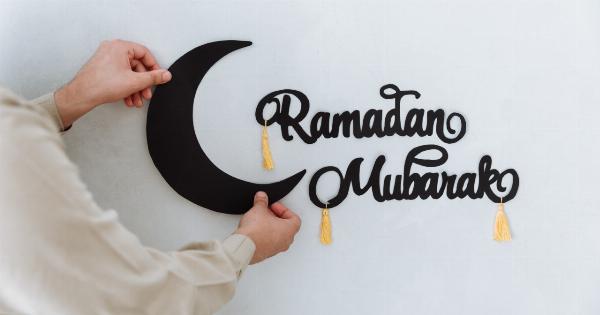A relationship is a delicate balance between two individuals who mutually decide to be together. It takes both partners to work together to make the relationship work.
However, one question that has remained unanswered is who has the power in a relationship. Is it one partner or both? Does the power lie in gender? Or perhaps, it is entirely dependent on the situation and the individuals involved. Let’s discuss this in detail to get a clearer understanding of who has the power in a relationship.
The Balance of Power in a Relationship
A healthy relationship is one that is built on equality and mutual respect. It means that both partners contribute to the relationship, and both have an equal say in decision making.
A relationship works best when both partners are on the same wavelength, and the balance of power is equal.
However, this balance can sometimes get disturbed. One partner might feel more dominant than the other, or there might be an imbalance of power.
This can lead to an unhealthy relationship, where one partner is always trying to assert their authority, and the other is being submissive. In such scenarios, it leads to problems like lack of trust, resentment, and ultimately, the relationship breaks down.
Does Gender Determine Power in a Relationship?
Gender has often been assumed to determine who has the power in a relationship. It is believed that men are dominant in relationships due to their physical strength, financial status, and societal expectations.
However, these assumptions are based on outdated stereotypes and are not accurate.
In a healthy relationship, both partners should have equal power and say in decision-making. Gender should not dictate who has more power. Stereotypes are limiting and can harm relationships.
Partners should work on building a relationship based on mutual respect and equal footing.
Different Forms of Power in a Relationship
Power in a relationship is not just limited to physical or financial dominance. There are different forms of power that come into play. Let’s take a look at some of them:.
Emotional Power
Emotional power is about having control over one’s emotions and the partner’s emotions.
It can manifest in different ways, such as using guilt or threats to get what one wants, controlling the narrative, or withholding affection to manipulate the partner. It leads to an unhealthy relationship, where one partner is always walking on eggshells to keep the other happy.
Intellectual Power
Intellectual power is about having more knowledge, skills, or expertise in a particular area. It can lead to an imbalance in the relationship, where one partner is always perceived to be right and the other is wrong.
It can lead to resentment and frustration in the long run.
Social Power
Social power is about having a higher social status or being part of a dominant group. It can manifest in different ways, such as being the breadwinner or having a higher education level.
It can lead to an unequal distribution of power, where one partner feels inferior to the other and is always trying to please them.
The Importance of Communication in a Relationship
Communication is the key to a healthy relationship. It allows both partners to express their thoughts and feelings and to address any issues that might arise. Communication should be open, honest, and respectful.
It is essential to discuss power dynamics in a relationship to ensure that both partners are on equal footing.
Having regular conversations about what each partner wants from the relationship can help to identify any power imbalances. Partners can work together to resolve any issues and build a relationship based on mutual respect and equality.
In Conclusion
A healthy relationship is one that is built on mutual respect and equality. There is no one answer as to who has the power in a relationship. It depends entirely on the individuals involved and the situation at hand.
Partners need to communicate openly and honestly to identify any power imbalances and work towards a healthy balance of power.




























